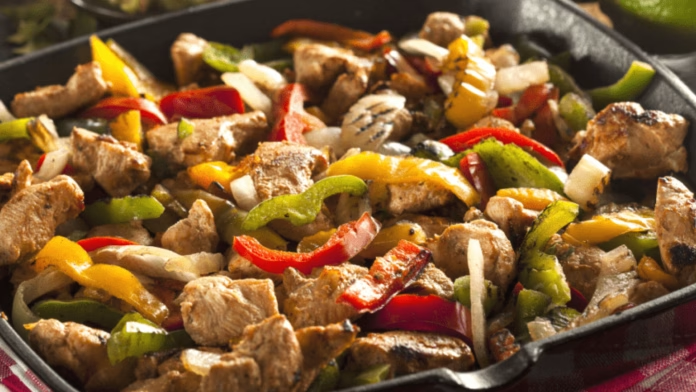As the summer season rolls around, many of us look forward to outdoor barbecues, picnics, and gatherings with friends and family. However, it’s important to be aware that warm weather poses unique challenges when it comes to food safety. The combination of heat and humidity creates an ideal environment for bacteria to thrive, putting your cooked food at risk. In this article, we will delve into the importance of summer food safety and provide essential tips to ensure that your meals remain safe and enjoyable throughout the season.
Understanding the Importance of Summer Food Safety
When it comes to food safety, the summer season requires special attention. The warmer temperatures provide an optimal breeding ground for bacteria, increasing the risk of foodborne illnesses. Foodborne illnesses are caused by consuming contaminated food or beverages, which can lead to unpleasant symptoms such as nausea, vomiting, diarrhea, and even more severe complications.
- The Dangers of Foodborne Illnesses in Summer
- The Relationship Between Warm Weather and Bacterial Growth:Bacteria thrive in warm temperatures, multiplying rapidly and potentially reaching harmful levels in a short period. The “danger zone” for bacterial growth lies between 40°F (4°C) and 140°F (60°C). This means that when the ambient temperature rises, the risk of bacterial growth in cooked food also increases. It is crucial to take appropriate measures to prevent the proliferation of bacteria and ensure food safety.
- Common Foodborne Illnesses During Summer:Certain types of foodborne illnesses are more prevalent during the summer months. For example, Salmonella and Campylobacter are two common bacteria that can cause gastrointestinal infections. These bacteria are often found in undercooked poultry, eggs, and contaminated water sources. Additionally, E. coli is another significant concern, often associated with undercooked ground beef and raw produce contaminated by fecal matter.
- High-Risk Foods in Warm Weather:Some foods are more prone to bacterial growth and require extra caution during the summer season. These high-risk foods include perishable items such as meat, poultry, seafood, eggs, dairy products, and mayonnaise-based salads. It’s important to handle and store these foods properly to minimize the risk of contamination and subsequent foodborne illnesses.
- Essential Tips for Summer Food Safety
To keep your cooked food safe during the summer, it’s essential to follow these tips:
- Don’t leave food out for too long:One of the most critical factors in food safety is the time that cooked food spends in the temperature danger zone. Leaving perishable food items out at room temperature for more than two hours (or one hour if the temperature exceeds 90°F/32°C) increases the risk of bacterial growth and foodborne illnesses. To minimize this risk, refrigerate or properly store leftovers promptly.
- Do not reheat food frequently:While it may be tempting to reheat leftover food multiple times, doing so can compromise its safety. Each time food is reheated, it passes through the temperature danger zone, providing an opportunity for bacterial growth. It’s best to reheat food once, ensuring it reaches a temperature of 165°F (74°C) throughout, and consume it immediately.
- Don’t mix too many foods at once:When preparing meals for outdoor gatherings, it’s important to avoid cross-contamination. Cross-contamination occurs when bacteria from one food item are transferred to another, potentially leading to foodborne illnesses. Use separate cutting boards, utensils, and plates for raw and cooked foods, and always wash your hands thoroughly after handling raw ingredients.
- Use another pot:When serving food outdoors, it’s common to use large pots or containers to keep the food warm. However, it’s important to remember that these pots can retain heat and contribute to bacterial growth if not handled properly. Instead of using the same pot to keep cooked food warm, transfer the food to a clean pot or container before serving. This helps prevent the accumulation of bacteria that may have multiplied during the cooking process.
- Practice proper grilling techniques:Grilling is a popular summer activity, but it’s essential to ensure that the food is cooked thoroughly to kill any bacteria present. Use a food thermometer to check the internal temperature of meats, poultry, and seafood. The safe internal temperature for different types of food varies, so refer to a food safety guide to ensure that you’re cooking them to the recommended temperature.
- Stay hydrated and use clean water sources:Hydration is crucial during the summer months, but it’s equally important to ensure that the water you consume is safe. Avoid drinking untreated water from unknown sources, as it may be contaminated with harmful bacteria. If you’re unsure about the quality of tap water, consider using bottled water or using a water filtration system to ensure safe drinking water.
As you enjoy the summer season and indulge in outdoor meals, it’s vital to prioritize food safety. The warmer temperatures create favorable conditions for bacterial growth, increasing the risk of foodborne illnesses. By understanding the dangers of warm weather on food safety and following essential tips, you can protect yourself and your loved ones from potential health risks.
Remember to keep food out of the temperature danger zone, avoid frequent reheating, prevent cross-contamination, and use separate pots for serving food. Additionally, practice proper grilling techniques, cook food to the recommended internal temperatures, and ensure that the water you consume is safe.
By following these guidelines, you can keep your cooked food safe and enjoy a delightful summer filled with delicious meals and cherished moments with your family and friends. Stay informed, be vigilant, and prioritize food safety to make the most of your summer dining experiences. Stay safe and enjoy your summer meals!





